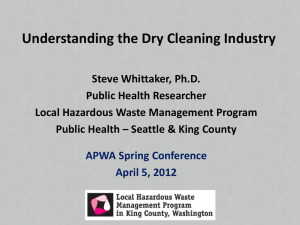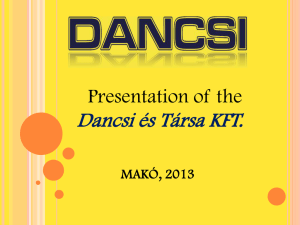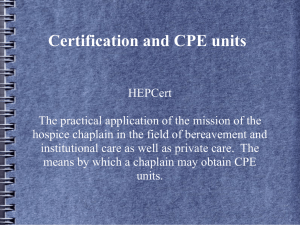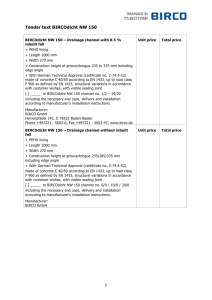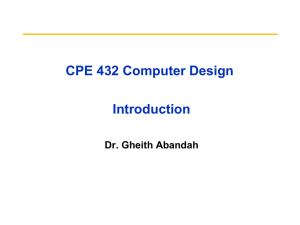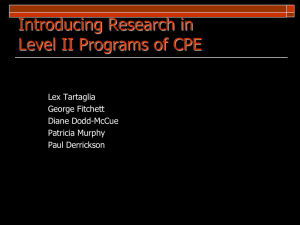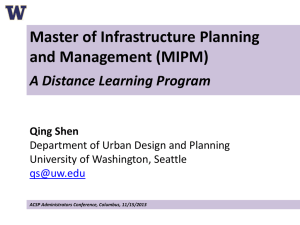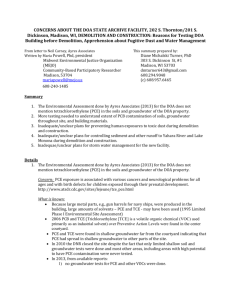CASC ON Minutes December 1, 2015
advertisement
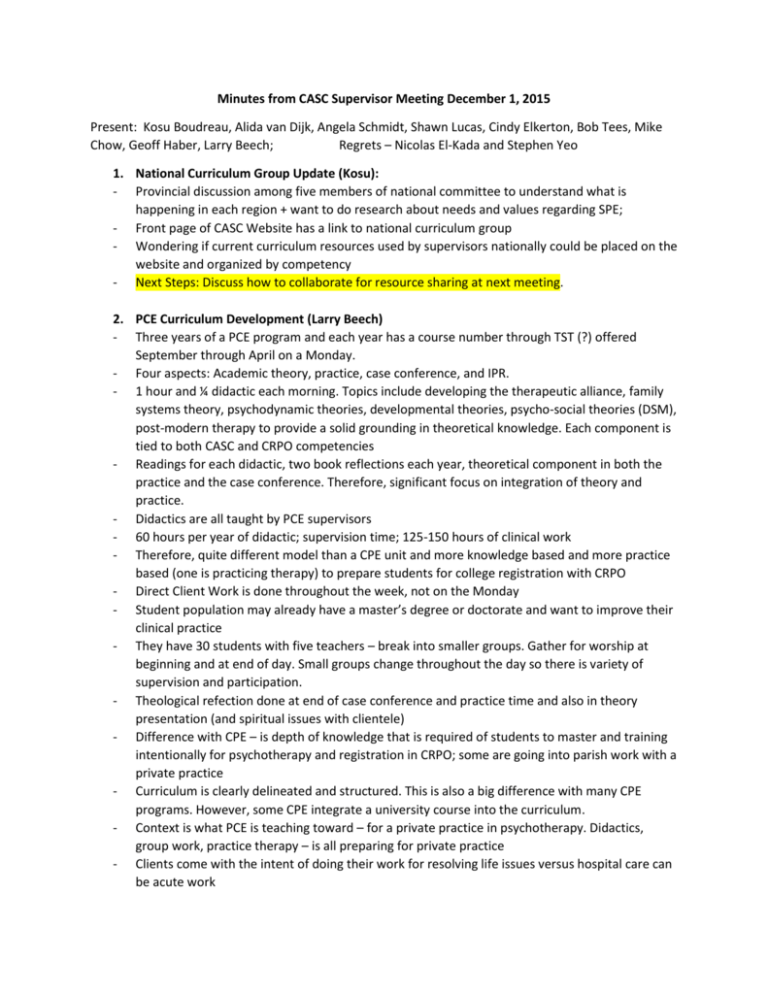
Minutes from CASC Supervisor Meeting December 1, 2015 Present: Kosu Boudreau, Alida van Dijk, Angela Schmidt, Shawn Lucas, Cindy Elkerton, Bob Tees, Mike Chow, Geoff Haber, Larry Beech; Regrets – Nicolas El-Kada and Stephen Yeo 1. National Curriculum Group Update (Kosu): - Provincial discussion among five members of national committee to understand what is happening in each region + want to do research about needs and values regarding SPE; - Front page of CASC Website has a link to national curriculum group - Wondering if current curriculum resources used by supervisors nationally could be placed on the website and organized by competency - Next Steps: Discuss how to collaborate for resource sharing at next meeting. 2. PCE Curriculum Development (Larry Beech) - Three years of a PCE program and each year has a course number through TST (?) offered September through April on a Monday. - Four aspects: Academic theory, practice, case conference, and IPR. - 1 hour and ¼ didactic each morning. Topics include developing the therapeutic alliance, family systems theory, psychodynamic theories, developmental theories, psycho-social theories (DSM), post-modern therapy to provide a solid grounding in theoretical knowledge. Each component is tied to both CASC and CRPO competencies - Readings for each didactic, two book reflections each year, theoretical component in both the practice and the case conference. Therefore, significant focus on integration of theory and practice. - Didactics are all taught by PCE supervisors - 60 hours per year of didactic; supervision time; 125-150 hours of clinical work - Therefore, quite different model than a CPE unit and more knowledge based and more practice based (one is practicing therapy) to prepare students for college registration with CRPO - Direct Client Work is done throughout the week, not on the Monday - Student population may already have a master’s degree or doctorate and want to improve their clinical practice - They have 30 students with five teachers – break into smaller groups. Gather for worship at beginning and at end of day. Small groups change throughout the day so there is variety of supervision and participation. - Theological refection done at end of case conference and practice time and also in theory presentation (and spiritual issues with clientele) - Difference with CPE – is depth of knowledge that is required of students to master and training intentionally for psychotherapy and registration in CRPO; some are going into parish work with a private practice - Curriculum is clearly delineated and structured. This is also a big difference with many CPE programs. However, some CPE integrate a university course into the curriculum. - Context is what PCE is teaching toward – for a private practice in psychotherapy. Didactics, group work, practice therapy – is all preparing for private practice - Clients come with the intent of doing their work for resolving life issues versus hospital care can be acute work - - All supervisors are adjunct with Toronto School of Theology; Considering submitting a localized application for CRPO from Toronto Centre for Pastoral Counselling Education; They feel they have met the requirements currently. They have faculty that meet regularly and a formal curriculum. They feel they may be the only unit based PCE program in Canada. They would apply under their name. Tom O’Connor, Kelvin Mutter and Alida all offer unit based PCE in Southwest Ontario Affirmation of the depth and context that PCE is offering and their presence on this committee Next Steps: Have others present their curriculum. Examine the differences in how hours are spent between CPE and PCE 3. Research (Alida) - Investigated if someone would take the lead on doing research in this area (asked Tom O’Connor, Kris Lund and Pam Mccarroll) but none are able at this time. - Shawn is interested in doing research and is willing to participate - Next Steps: We will keep this on our agenda to define terms of a research project - Need for an on-line ethics course available to both CPE and PCE and this we can share together that are not linked to a university where the student would need to be enrolled in a university. - We could partner with an on-line education institute (i.e. de Souza Institute in Toronto) to develop the Ethics module. 4. Supervisor forum at the CASC National Conference Kosu brought this idea to the program planners. Talked to Mark Doucet to have a board initiative to develop streams for workshops and training at CASC conferences Next Steps: Follow up before planning for 2017 conference in Saskatchewan Kosu - Will send out a doodle poll for a meeting in January 2016.
